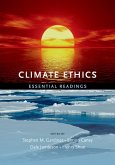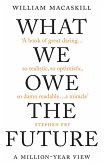Exploring the environmental effects of animal agriculture, fishing, and hunting,
Eating Earth exposes critical common ground between earth and animal advocacy. The first chapter (animal agriculture) examines greenhouse gas emissions and climate change, manure and dead zones, freshwater depletion, deforestation, predator control, land and use--including the ranching industries public lands subsidies. Chapter two first examines whether or not the consumption of fish is healthy and outlines morally relevant aspects of fish physiology, then scrutinizes the fishing industry, documenting the "silent collapse" of ocean ecosystems and calling attention to the indiscriminate nature of hooks and nets, including the problem of bycatch and what this means for endangered species and fragile seascapes. Chapter three outlines the historic link between the U. S. Government, wildlife management, and hunters, then systematically unravels common beliefs about sport hunting, such as the belief that hunters are essential to wildlife conservation, that contemporary hunting qualifies as a tradition, and that hunting is merciful, economical, or rooted in "fair chase." At the end of each chapter, Kemmerer examines possible solutions to problems presented, such as sustainable meats, organic and local, grass fed, aquaculture, new fishing technologies, and enhanced regulations.
Eating Earth offers a concise examination of the environmental effects of dietary choice, clearly presenting the many reasons why dietary choice ought to be front and center for environmentalists. Kemmerer's writing, supported by nearly 80 graphs and summary slides, is clear, straightforward, and punctuated with wry humor.
Dieser Download kann aus rechtlichen Gründen nur mit Rechnungsadresse in A, B, BG, CY, CZ, D, DK, EW, E, FIN, F, GR, HR, H, IRL, I, LT, L, LR, M, NL, PL, P, R, S, SLO, SK ausgeliefert werden.









